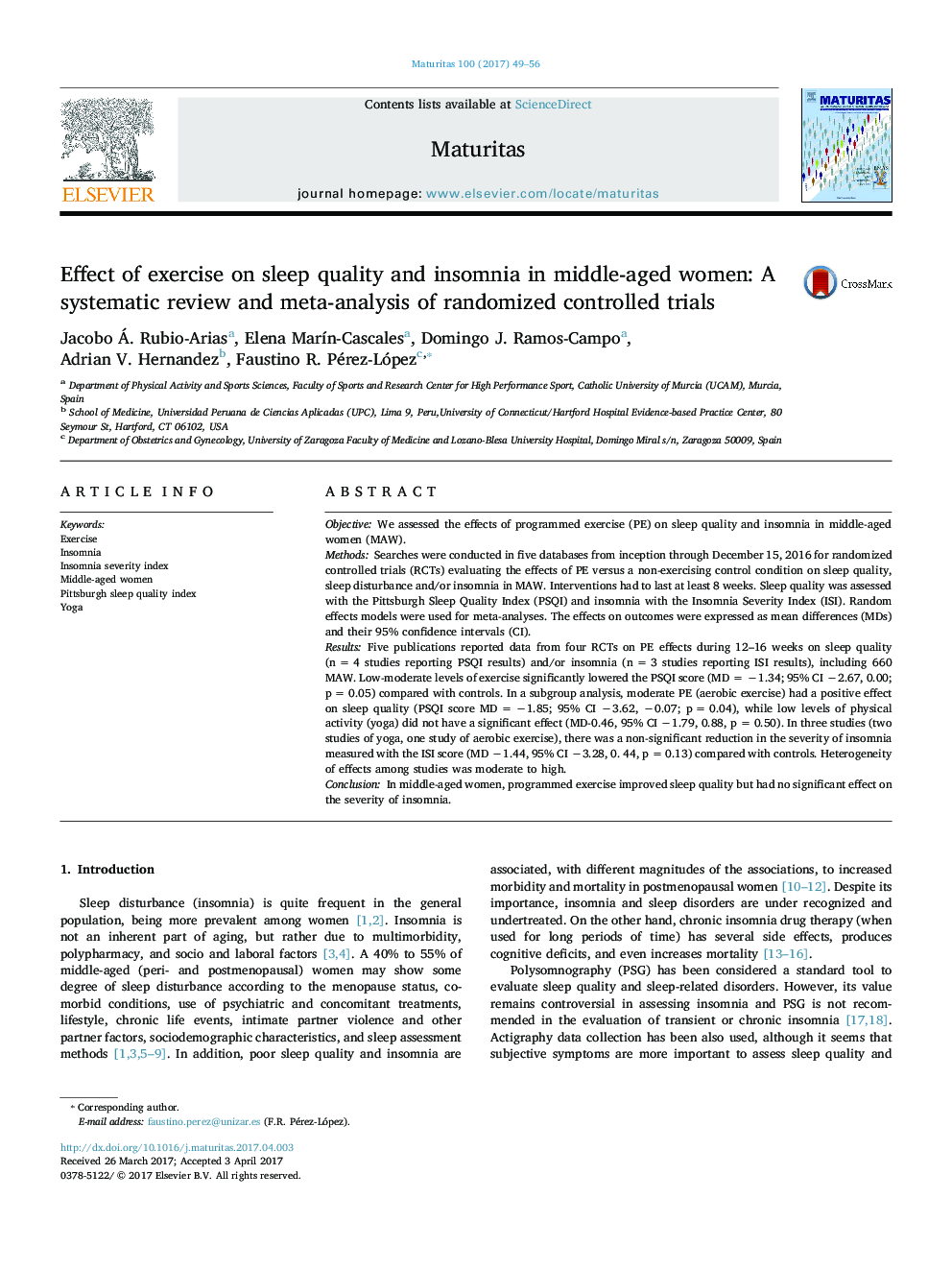| کد مقاله | کد نشریه | سال انتشار | مقاله انگلیسی | نسخه تمام متن |
|---|---|---|---|---|
| 5503349 | 1535287 | 2017 | 8 صفحه PDF | دانلود رایگان |
- Low-moderate levels of exercise for 12 weeks had a positive effect on sleep quality.
- Aerobic exercise had a positive effect on sleep quality, while low levels of physical activity (yoga) did not have a significant effect.
- There was a non-significant reduction in the severity of insomnia.
ObjectiveWe assessed the effects of programmed exercise (PE) on sleep quality and insomnia in middle-aged women (MAW).MethodsSearches were conducted in five databases from inception through December 15, 2016 for randomized controlled trials (RCTs) evaluating the effects of PE versus a non-exercising control condition on sleep quality, sleep disturbance and/or insomnia in MAW. Interventions had to last at least 8 weeks. Sleep quality was assessed with the Pittsburgh Sleep Quality Index (PSQI) and insomnia with the Insomnia Severity Index (ISI). Random effects models were used for meta-analyses. The effects on outcomes were expressed as mean differences (MDs) and their 95% confidence intervals (CI).ResultsFive publications reported data from four RCTs on PE effects during 12-16 weeks on sleep quality (n = 4 studies reporting PSQI results) and/or insomnia (n = 3 studies reporting ISI results), including 660 MAW. Low-moderate levels of exercise significantly lowered the PSQI score (MD = â1.34; 95% CI â2.67, 0.00; p = 0.05) compared with controls. In a subgroup analysis, moderate PE (aerobic exercise) had a positive effect on sleep quality (PSQI score MD = â1.85; 95% CI â3.62, â0.07; p = 0.04), while low levels of physical activity (yoga) did not have a significant effect (MD-0.46, 95% CI â1.79, 0.88, p = 0.50). In three studies (two studies of yoga, one study of aerobic exercise), there was a non-significant reduction in the severity of insomnia measured with the ISI score (MD â1.44, 95% CI â3.28, 0. 44, p = 0.13) compared with controls. Heterogeneity of effects among studies was moderate to high.ConclusionIn middle-aged women, programmed exercise improved sleep quality but had no significant effect on the severity of insomnia.
Journal: Maturitas - Volume 100, June 2017, Pages 49-56
